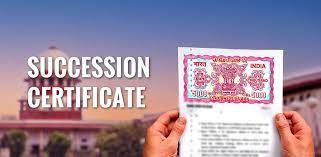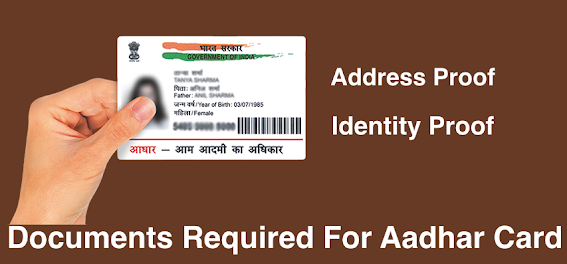How to Legally Change Your Name in India A Step-by-Step Guide?
Have you ever considered changing your name? Whether it's for personal, professional, or cultural reasons, the process of changing your name in India can seem daunting. However, with the right understanding and guidance, you can navigate through the legal requirements and make a successful name change. In this article, we will explore the step-by-step process of changing your name in India, along with the reasons why people choose to change their names and the challenges they may encounter along the way.
Introduction
Changing your name is a significant decision that can have various motivations. Some individuals may want to embrace a new identity, while others may seek to align their names with their gender identity. Additionally, marriage, cultural or religious preferences, and professional considerations can also drive the desire for a name change. Understanding the legal requirements and procedures involved is essential to ensure a smooth transition.
Understanding the Process of Name Change
Before diving into the specifics, it's crucial to understand the process of changing your name in India. The process typically involves legal documentation and notifying relevant authorities about the name change. By following the appropriate steps, you can ensure that your new name is recognized legally and can be used on various identity documents.
Reasons for Changing Your Name
Personal Reasons
Some individuals choose to change their names for personal reasons. It could be a desire to distance themselves from their past or to establish a new identity that better aligns with their beliefs, values, or aspirations. A name change can symbolize personal growth and a fresh start in life.
Professional Reasons
Changing your name for professional reasons can be a strategic move. It might involve adopting a name that is more memorable, marketable, or suitable for a specific industry. For example, actors often use stage names that are catchier or easier to remember than their original names.
Cultural or Religious Reasons
Cultural or religious reasons are often influential factors for changing one's name. Some individuals may choose to adopt a name that is more aligned with their cultural or religious background. This decision can help them feel connected to their heritage and values.
Gender Identity
For individuals transitioning or exploring their gender identity, changing their name can be an important step towards self-acceptance and authenticity. Adopting a new name that aligns with their gender identity can provide a sense of empowerment and recognition.
Legal or Identity Document Purposes
Name changes may also be necessary for legal or identity document purposes. It could involve updating documents such as passports, driver's licenses, and social security records. Ensuring consistency across these documents is vital to avoid confusion and legal complications.
Changing Your Name after Marriage
Marriage often brings about a change in a person's name, especially for brides. While it is not mandatory, many individuals choose to adopt their spouse's last name as a symbol of unity and family. This process involves updating various legal documents and notifying relevant authorities.
Legal Requirements for Changing Your Name
To legally change your name in India, certain requirements must be fulfilled. These requirements may vary depending on the state or union territory you residein. Generally, the following documents and steps are involved:
Affidavit: The first step is to create an affidavit stating your intention to change your name. This affidavit needs to be notarized and should include details such as your current name, desired new name, reason for the name change, and your personal information.
Newspaper Publication: After obtaining the affidavit, it is necessary to publish a notification of your name change in two local newspapers, including one in the regional language and another in English. This publication serves as a public record and provides an opportunity for objections, if any, to be raised.
Gazette Notification: The next step is to publish a notification of your name change in the Official Gazette of your respective state or union territory. This notification further validates the change and is crucial for updating your name on government-issued documents.
Updating Identity Documents: Once the Gazette notification is received, you can proceed to update your name on various identity documents such as Aadhaar card, PAN card, passport, driver's license, and bank accounts. Each document may have specific requirements and procedures, so it is important to check with the respective authorities.
Step-by-Step Guide to Changing Your Name
Now, let's delve into a step-by-step guide to changing your name in India:
Step 1: Determine Your Reasons: Understand why you want to change your name and evaluate if it aligns with personal, professional, cultural, or legal considerations.
Step 2: Prepare the Affidavit: Consult with a lawyer or draft an affidavit yourself stating your intention to change your name. Include the necessary details and get it notarized.
Step 3: Publish in Newspapers: Place the notification of your name change in two local newspapers as per the requirements. This step ensures public awareness and gives an opportunity for objections, if any.
Step 4: Gazette Notification: Submit the necessary documents, including the affidavit and newspaper clippings, to the respective department for publishing the Gazette notification. This step legally validates your name change.
Step 5: Update Identity Documents: Once you receive the Gazette notification, start updating your name on identity documents like Aadhaar card, PAN card, passport, and driver's license. Follow the specific procedures for each document.
Step 6: Notify Other Institutions: Inform other relevant institutions about your name change, such as banks, insurance providers, educational institutions, and employers. Provide them with the necessary documents as proof.
Step 7: Follow-up and Documentation: Keep track of all the documents you submit and maintain a record of the updated versions. It's crucial to ensure consistency across all official records.
Common Challenges in the Name Change Process
While changing your name in India is a relatively straightforward process, certain challenges may arise. These challenges can include:
Objections: During the newspaper publication stage, objections can be raised by individuals who may have concerns or disputes regarding the name change. Resolving such objections may require legal assistance.
Documentation Updates: Updating your name on various identity documents can be time-consuming and may involve multiple visits to different government offices. Staying organized and following up regularly is important to ensure a smooth process.
Legal Procedures: The legal procedures and requirements for changing your name can vary depending on the state or union territory you reside in. It is essential to familiarize yourself with the specific rules and regulations applicable to your jurisdiction.




Comments
Post a Comment